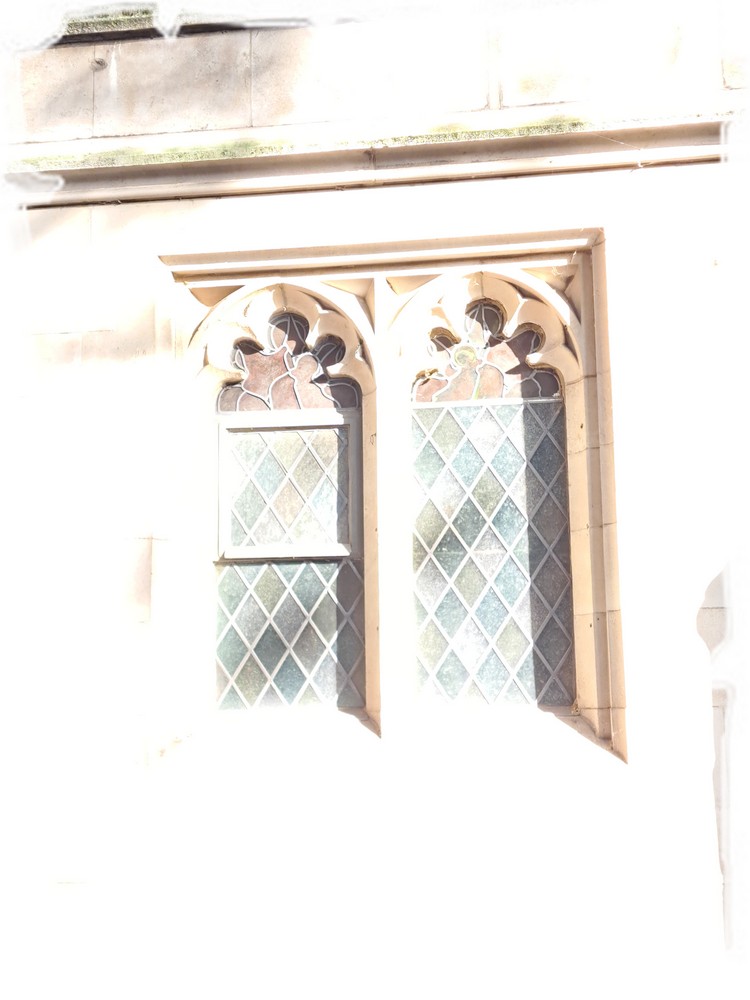TBM34: Trekking With God on Planet Earth
Today is Easter Sunday, a day when many people around the world reflect on the mysteries of resurrection, healing, transformation, and new growth. I’d like to join this discussion by sharing with you a powerful moment of insight and poetry that came to me one day last fall when I was poring over a book given to me by my son.
The day he brought the book over, he was coming because I was hosting a birthday lunch for my sister. He showed up with a card and present for my sister, but he also arrived with a gift for me — a book he thought I’d really enjoy. And he was right. (Male intuition at work.) It’s called Across the Tibetan Plateau: Ecosystems, Wildlife, and Conservation by Robert L. Fleming, Jr., Dorje Tsering, and Liu Wulin (New York: W.W. Norton & Co., 2007). It’s filled with beautiful photos and informative text about successful efforts to conserve habitats and animal species in Tibet. Learning about these ecosystems is my idea of good time. I’ve had a lifelong fascination with the wonders found in nature.
The chapter about the wet southeast of Tibet (who knew it wasn’t all mountains and high desert?) caught my attention with the truth it tells about all Creation. This is the experience of life I’d like to share with you.
Through the southeast region of Tibet flows a river called the Yarlung Tsangpo, a river which has carved one of the deepest gorges on Earth. At the bottom of this gorge, the biome is tropical, with wild bananas and bamboo and plentiful rain. At the top of the peaks that lift above the gorge, the zone is perpetual ice and snow. If you start a journey on the Himalayan heights and walk down to the river, you’ll pass through “five biological zones of flora and fauna within a distance of 60 kilometers (37 miles) (page 18).” In a distance that can be hiked in two or three days (if you’re in good shape) you’ll experience mountain-tundra, then cold-temperate, then warm-temperate, then subtropics, and finally the lush tropics of the river valley. This experience has been preserved within the Medog Nature Preserve.
Vastly different biomes hover next to each other here in a way we don’t normally experience on Planet Earth. Usually we have to travel hundreds of miles to experience a completely different habitat (at least, in Canada we have to!). But in this mysterious corner of Tibet, we can traverse many of Asia’s natural wonders within a few short miles. It’s deceiving. Where does one biome end and another begin? Where does warm-temperate turn into sub-tropical? Is there a black-and-white line on the ground, a clear-cut division between one habitat and its neighbouring zone? No. The changes are subtle. The zones blend slowly into each other. All you really notice as you’re descending the path is that eventually certain plants and trees become more and more scarce until they finally disappear; yet the loss is accompanied by change and new growth as they’re replaced by other equally beautiful (but different) plants and trees. As the vegetation changes, so do the resident populations of birds and animals and insects. Each species lives within the ecosystem it’s best suited to. It’s natural and harmonious and perfect.
The universe we live in, with its vast expanses of space and energy and matter, is a lot like the Nature Preserve in the Yarlung Tsangpo River region of southeastern Tibet. Within God’s Creation lie many different ecosystems, many different biomes. But, as a trekker in Tibet would discover in walking the long path, there are few clear dividing lines between these biomes, and no one biome is better than another. All are mutually interdependent. All are equally beautiful — equally beautiful but very different from each other.

Like cherry blossoms, and the transient beauty they represent, our human lives are filled with moments of change, loss, and renewal that remain with us as Souls. Photo credit JAT 2021.
When we choose to incarnate here on Planet Earth, we’re choosing to live for a temporary time in one of God’s many biomes. You can take your pick as to which biome you think we’re living in while we’re walking through this 3-dimensional corner of Creation. Some would imagine we’re living in the lush tropical zone. Some would be convinced we’re all at the top of a cold and barren Himalayan mountain. Still others would imagine we’re somewhere in the middle. It doesn’t really matter where you think you are right now. All you really need to know for sure is that all living creatures on Planet Earth are sharing a temporary journey of discovery and growth in a biome that’s different from our usual Home, but no less beautiful and no less important to us than our usual spot in God’s Spiritual Kitchen.
Life on Planet Earth is filled with beauty and pain and sacredness. But life here doesn’t end when our physical lives reach the end of their temporary measure. Like the trees and plants in the Tibetan gorge, there are limits to the places our physical bodies can reach and grow. A fig tree cannot grow in mountain tundra, while the cool-footed rhododendron sags in tropical heat. This is all right with God. There is no judgment from God in the death of the physical body, a death that must arise when it’s time for the trekker to pass into the biome where he or she more naturally belongs.
Does it hurt when a person makes this trek to another place? Well, that depends. Does it hurt physically to make the trek? Well, no. It doesn’t hurt physically. It feels kind of weird (I’m told by my angels) but the journey doesn’t last long. God the Mother and God the Father swoop us up in their loving arms and carry us Home almost before we know what’s happening. There we’re greeted by the people — the angels — who are closest and dearest to our hearts.
Does it hurt emotionally to make the trek? Well, yes. Of course it hurts to leave behind the people you love. You miss your Earth-time friends as much as they miss you, because the heart is the heart is the heart.
So there’s a lot of crying on both sides of the path when someone makes the journey Home. There’s joy but there’s also a lot of grief — for everyone involved. But the journey has been accomplished and the soul is quietly proud.The soul’s senses are widened, the soul’s mind is broadened, the soul’s heart is filled with the knowledge and memory of love, a love that grows, like rare and precious flowers, in all the nooks and crannies of the strange place we call Planet Earth.
Blessings to you at this time of reflection and regrowth. Always remember you are a true child of God, a person-of-soul filled with a courage and devotion you may scarcely remember in your present life, though God remembers.
God always remembers.
God knows how wonderful you really are.


